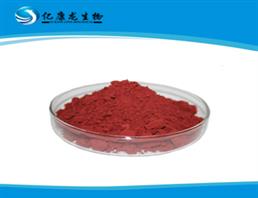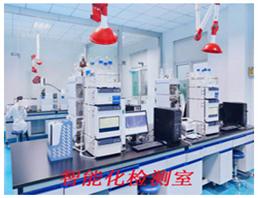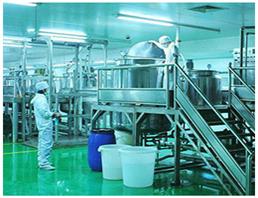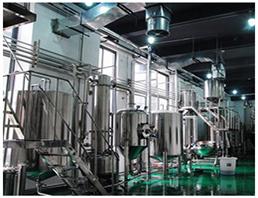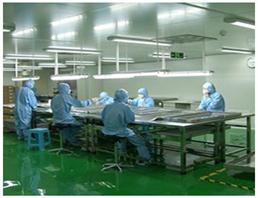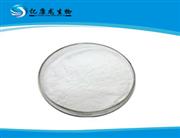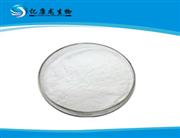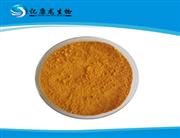1/5
Vitamin B12
- Min. Order0.01KG
- Purity99%(Customizable specifications)
- Cas No68-19-9
- Supply Ability3t
- Update time2018-10-17
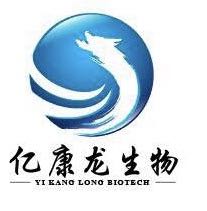
 China
China
Since:2018-02-07
Address:No. 99, Gangwu Avenue, International Port Area, Xi'an, Shaanxi Province
| Product Name | Vitamin B12 |
| CAS No | 68-19-9 |
| EC-No | |
| Min. Order | 0.01KG |
| Purity | 99%(Customizable specifications) |
| Supply Ability | 3t |
| Release date | 2018/10/17 |
Vitamin B12, also known as cobalamin, is the only vitamin that contains metal elements. Vitamin B12 in nature is synthesized by microorganisms, and higher animals and plants cannot make vitamin B12. Vitamin B12 is the only vitamin that requires an intestinal secretion (endogenous factor) to help it be absorbed. Some people lack gastrointestinal symptoms and lack of such endogenous factors, even if the source of the diet is sufficient, they will suffer from pernicious anemia. There is essentially no vitamin B12 in plant foods. It stays in the intestines for a long time and takes about three hours (most water-soluble vitamins take only a few seconds) to be absorbed. The main physiological function of vitamin B12 is to participate in the production of bone marrow red blood cells to prevent pernicious anemia; to prevent damage to the brain nerves. Vitamin B12 is the latest found in B vitamins to date. Vitamin B12 is a polycyclic compound containing trivalent cobalt, and the four reduced pyrrole rings are linked together to form one porphyrin macrocycle (similar to porphyrin), which is the core of vitamin B12 molecule. Therefore, compounds containing such a ring are referred to as porphyrins. Vitamin B12 is light red needle-like crystal, soluble in water and ethanol. It is most stable under mild acid conditions of pH 4.5-5.0. It is decomposed by strong acid (pH<2) or alkaline solution. It can be destroyed to some extent when exposed to heat. However, the short-term high-temperature disinfection loss is small, and it is easily damaged by strong light or ultraviolet light. The average cooking process loses about 30%.
Physiological action
B12 is known to be a coenzyme of several mutases, such as a methyl aspartate mutase that catalyzes the conversion of Glu to methyl Asp, and methylmalonyl which catalyzes the conversion of methylmalonyl CoA to succinyl CoA. CoA mutase. B12 coenzyme is also involved in the metastasis of methyl and other one carbon units.
B12 is mainly found in meat. Soybeans in plants and some herbs also contain B12. Intestinal bacteria can be synthesized, so it is not lacking under normal circumstances, but B12 is a vitamin that is easily deficient in people with digestive diseases. It is also indispensable for the production of red blood cells. Important elements, if severely deficient, will lead to pernicious anemia!
Vitamin B12 is widely found in animal foods. And its form cannot be absorbed by the body. In addition, vitamin B12 is also the only vitamin containing essential minerals. It is red because it contains cobalt. It is also called red vitamin. It is a small number of colored vitamins. Although vitamin B12 belongs to group B vitamins, it can be stored in the liver. After using up the storage amount, it will be deficient after more than half a year. The body's vitamin B12 needs very little, as long as the diet is normal, there will be no shortage. A few people with malabsorption must pay special attention.
Absorption metabolism
Vitamin B12 in food combines with protein to enter the digestive tract of the human body. Under the action of gastric acid, pepsin and trypsin, vitamin B12 is released and binds to a glycoprotein factor (IF) secreted by gastric mucosal cells. The vitamin B12-IF complex is absorbed in the ileum. The storage of vitamin B12 is very small, about 2~3mg in the liver. It is mainly excreted from the urine and partly from the bile.
Physiological function
There are two main ones: 1 as a cofactor for methyltransferase, involved in the synthesis of methionine, thymine, etc., such as the conversion of methyltetrahydrofolate to tetrahydrofolate and the transfer of a methyl group to a methyl acceptor (like a half Cystine) makes the methyl acceptor a methyl derivative (such as methionine, methyl homocysteine), and the reaction is shown in the figure. Therefore, vitamin B12 can promote the biosynthesis of proteins, and when it is lacking, it affects the growth and development of infants and young children. 2 protects the transfer and storage of folic acid in cells. When vitamin B12 is deficient, the human folic acid content of red blood cells is low, and the folic acid stored in the liver is reduced, which may be related to the deficiency of vitamin B12, which causes difficulty in the transfer of methyl groups from homocysteine to methionine. The storage of tetrahydrofolate in the cells is due to the strong tendency of tetrahydrofolate to form a methyltetrahydrofolate with a methyl group which synthesizes polyglutamic acid.
The main function
1. Promote methyl transfer
2, promote the development and maturation of red blood cells, so that the hematopoietic function of the body is in a normal state, prevent pernicious anemia; maintain nervous system health
3, in the form of coenzyme, can increase the utilization of folic acid, promote the metabolism of carbohydrates, fats and proteins
4. It has the function of activating amino acids and promoting the biosynthesis of nucleic acids, which can promote the synthesis of proteins, which plays an important role in the growth and development of infants and young children.
5, metabolize fatty acids, so that fat, carbohydrates, protein are properly used by the body
6, eliminate irritability, focus, enhance memory and balance
7. It is an indispensable vitamin for the nervous system function and participates in the formation of a lipoprotein in nerve tissue.
One is to increase the utilization of folic acid, synthesize methionine (synthesized from homocysteine) and choline together with folic acid, and synthesize cyanocobalamin-based precursors such as methylcobalamin and coenzyme in the process of producing purines and pyrimidines. B12, involved in the methylation process of many important compounds. When vitamin B12 is deficient, the activity of transferring a methyl group from methyltetrahydrofolate is reduced, causing folic acid to become an unusable form, resulting in folic acid deficiency.
The second is to maintain the metabolism and function of the myelin sheath. In the absence of vitamin B12, it can cause neurological disorders, spinal cord degeneration, and can cause severe mental symptoms. Vitamin B12 deficiency can cause peripheral neuritis. The early manifestations of a child's lack of vitamin B12 are mood abnormalities, sluggish expression, unresponsiveness, and eventually anemia.
The third is to promote the development and maturation of red blood cells. The conversion of methylmalonyl-CoA to succinyl-CoA is involved in the tricarboxylic acid cycle, where succinyl-CoA is involved in the synthesis of heme.
Fourth, vitamin B12 is also involved in the synthesis of deoxynucleic acids (DNA), the metabolism of fats, carbohydrates and proteins, and the synthesis of nucleic acids and proteins.
pathology
Company Profile Introduction
Shaanxi Yikanglong Biotechnology Co., Ltd. is a high-tech biochemical enterprise specializing in the research, development, production and sales of animal and plant extracts, pharmaceutical raw materials and intermediates. The company has a world-class biotechnology research and development team. The company consists of R&D department, production department, sales department, administrative department, quality control inspection and procurement department, strictly controls all aspects of raw materials from harvesting and processing to packaging and transportation, ensuring that product quality meets high standards and pays attention to Highly educated and highly qualified personnel training, the research and development department has 30 doctoral and master's degree holders, and the rest of the departments are mainly undergraduate talents. Products cover the pharmaceutical, food, cosmetics industry, with 8 liquid chromatography, 3 gas chromatography, 2 ICP-MS, 2 UV detection, 3 automatic moisture detection, irradiation residual PPSL detection, Switzerland imported thin layer scanning (HPTLC), GC/LC-MS-MS and a professional microbiological control system. Yikanglong adheres to the concept of “high quality, high service and high image”, allowing “customers to pay a price and buy 100 million copies of peace of mind”. Through advanced technology and scientific management methods, we strive to provide excellent product quality and professionalism. Concentrated service, 100% customer satisfaction, our products sell well in Europe, America, Asia and many other countries, is the preferred quality supplier for many Nasdaq listed companies. In Yikang Long, not only is it a product, but it is also a relief.
